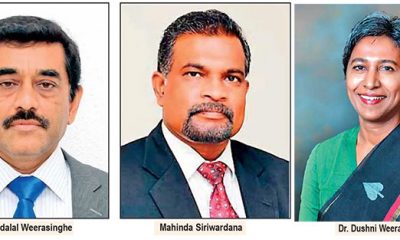News
Economic crisis: Treasury Chief frowns on home-grown remedy tried by GR regime

Secretary to the Treasury and Finance Ministry Mahinda Siriwardana has said that even if Sri Lanka achieves the goal of zero corruption, tax revenue will still have to be increased to bridge the budget deficit and lessen the country’s debt burden.
Referring to the Supreme Court ruling pertaining to economic management delivered on Nov 14, 2023, Siriwardena said it was imperative that elected representatives and state officials ensure proper econmic management.
Pointing out that Sri Lanka’s government revenue as a percentage of GDP had been as low as 8.3 percent in 2021, Siriwardana said that the situation was so bad that the government found it difficult to meet day-to-day expenses.
The SC judgment had said the state officials under any circumstances couldn’t absolve themselves of the responsibility for acting in the best interests of the public and were entrusted with significant powers to uphold public trust, requiring them to adhere to the directives of the Constitution, Siriwardana said.
The Treasury Secretary said so delivering the inaugural Prof. K. Dharmasena memorial lecture at the Kelaniya University on Monday (Jan 30) close on the heels of undergraduates storming the main administrative building there to protest against a planned visit by President Ranil Wickremesinghe the following day.
Siriwardana succeeded S.R Attygalle in early April 2022 amidst the worst-ever economic crisis.
The Treasury Secretary explained why President Gotabaya Rajapaksa’s government had failed to secure a Rapid Financing Instrument (RFI) at the early staes of the crisis.
Although President Gotabaya Rajapaksa sought RFI from the International Monetary Fund (IMF) in April 2020, five months after being elected, his administration failed to accept the IMF prescribed immediate debt restructuring. Instead of adopting a strategy of macroeconomic reforms to restore fiscal and external buffers supported by the IMF, the government had opted for what Siriwardana called a home-grown solution.’
Sri Lanka sought RFI in the wake of significant tax reforms with sharp reductions in VAT (Value-Added Tax) and income tax rates and large increases in tax free thresholds. “When taxes were reduced at the end of 2019, nobody questioned how public services would be funded. The result was an unprecedented escalation in debt, leading to this economic crisis.
Siriwardana pointed out that for want of cohesive corrective measures to address the issues at hand, credit ratings continued to deteriorate. By September 2020, Moody’s had downgraded Sri Lanka to Caa1, Fitch downgraded Sri Lanka to CCC by November 2020, and S&P downgraded Sri Lanka to CCC by December 2020, Siriwardana pointed out.
“There have been long-standing structural weaknesses in the Sri Lankan economy which have been neglected for many decades, given the pain associated with remedying these issues. The weaknesses include fiscal sector imbalances, inadequate external policy buffers, financial and monetary sector vulnerabilities, deficiencies in governance, and shortcomings in the legal and institutional framework in the country. The recent external shocks faced by the country, including the Easter Sunday attacks, the COVID-19 pandemic, the Russia-Ukraine conflict, coupled with significant domestic policy errors, exposed these macroeconomic vulnerabilities and triggered the prevailing economic crisis.”
In macroeconomic terms, the crux of the problem has always been the persistent twin deficits – budget deficits in the fiscal account and current account deficits in the balance of payments (BOP) accounts, Siriwardana added.
The Treasury Secretary said that the country should have changed its unsustainable practices, beginning 2006/2007, when the opportunity to access concessional foreign financing diminished in the wake of Sri Lanka’s per capita GDP crossed the middle income threshold. Instead of gradually and significantly reducing its deficits and borrowing requirements, the then government shifted to commercial borrowings, primarily in the form of international sovereign bonds (ISBs). “Most of these bonds have up to a 10-year maturity periods, so, until around 2019, Sri Lanka did not face much difficulty in terms of repayment pressures for external debt.”
Siriwardana also discussed the often raised issue of whether ISBs caused the debt crisis. In fact, the government at the time made a conscious decision to raise additional funds amounting to USD 2.4 billion in long term ISBs to ensure Sri Lanka would have sufficient reserve buffers to get through a period of volatility amidst the election cycles of 2019 and 2020, Siriwwardana said. ” There have been claims that this increase in ISB borrowings was a cause of the debt crisis – however in reality, it was the additional reserve buffers created by those ISBs that enabled the government to avoid a crash in the economy during the worst of the COVID-19 pandemic.
“The government maintained primary surpluses in 2017 and 2018, indicating that the ISB borrowings were not driven by budget deficits, but in order to build up reserves and to improve the quality of reserves by converting maturing short term debt into longer term stable instruments such as ISBs and syndicated loans. The fundamental drivers of the economic crisis were fiscal and debt unsustainability, whereas ISBs were just one of many financing instruments.”
Siriwardana said: “There have been various theories as to what caused the economic crisis, including the COVID-19 pandemic, ISB borrowings, the Debt Standstill policy. However, it is clear that the fundamental cause has been long standing macroeconomic vulnerabilities and domestic policy errors. There have also been various alternative proposals and theories as to how the country can recover without the citizens having to bear a burden. But, we have seen today that measures such as asset recovery, collection of taxes in arrears, elimination of corruption, while all being essential actions, do not serve as an alternative to the macroeconomic reforms being implemented today. Those are reforms that were known to all of us for years if not decades. But, those much needed reforms were delayed mainly due to political reasons. In the past, and up to now, the present generation lived a better life by borrowing thereby sacrificing the lives of the future generations.
“However, it is critical to understand that now we have come to a situation where the present generation should make sacrifices for the betterment of the lives of the future generations.” (SF)
News
Matara Festival for the Arts’ inaugurated by the Prime Minister
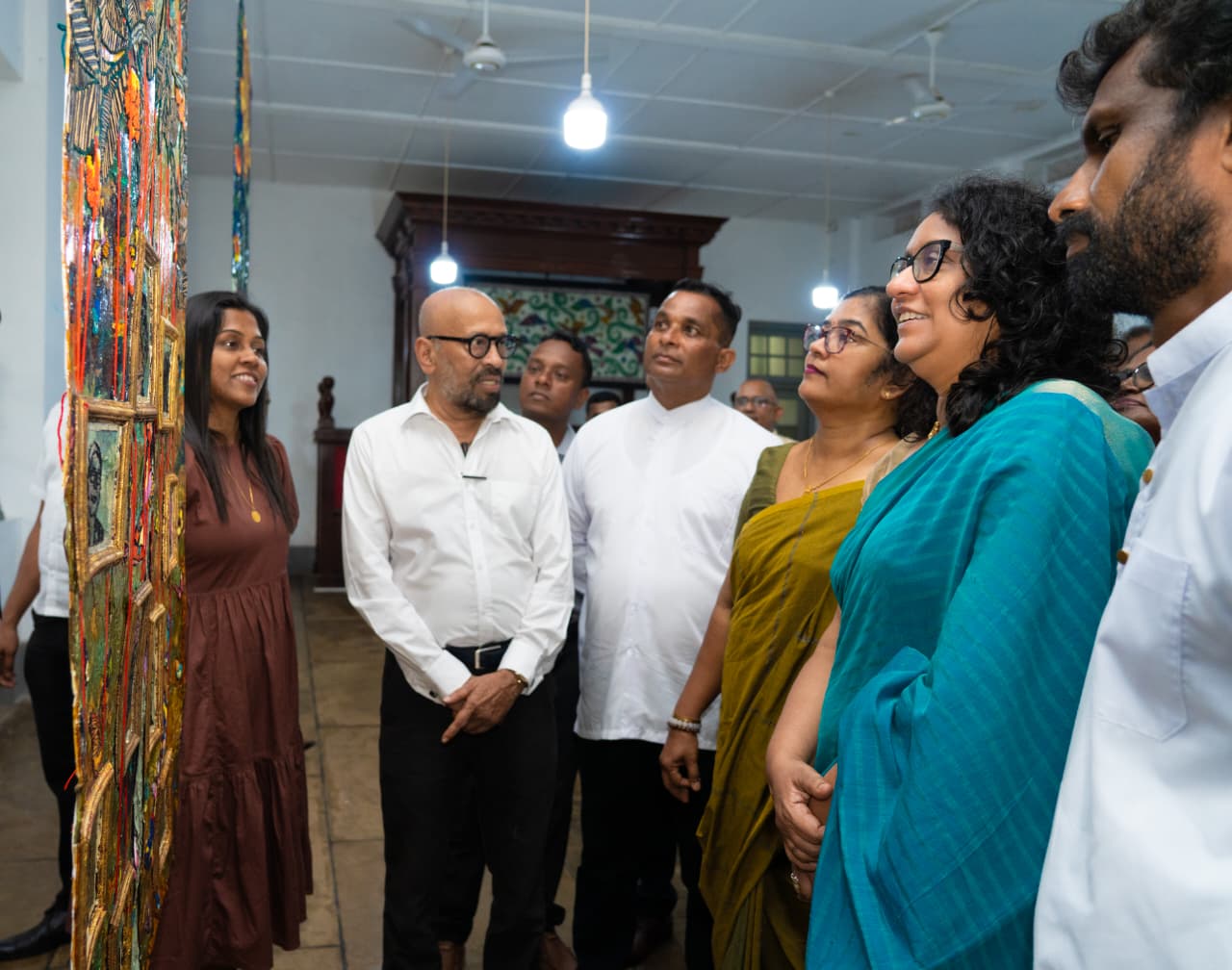
The inaugural ceremony of the Matara Festival for the Arts, featuring a wide range of creations by local and international artists, was held on February 19 at the Old High Court premises of the Matara Fort, under the patronage of Prime Minister Dr. Harini Amarasuriya.
The festival, centred around the Old High Court premises in Matara and the auditorium of the Matara District Secretariat, will be open to the public from 20 to 23 of February. The festival will be featured by visual art exhibitions, short film screenings, Kala Pola, and a series of workshops conducted by experts.
The inaugural event was attended by the Minister of Women and Child Affairs, Ms. Saroja Paulraj, along with artists, guests, and a large number of schoolchildren.
(Prime Minister’s Media Division)
News
Only single MP refuses salary as Parliament details pays and allowances
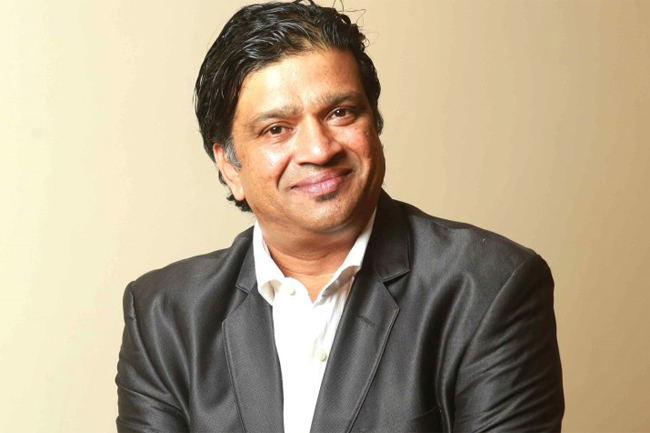
Only one Member of Parliament has chosen not to receive the salaries and allowances entitled to MPs, Prime Minister Dr. Harini Amarasuriya revealed in Parliament last Thursday, shedding light on the financial perks enjoyed by members of the Tenth Parliament.
Speaking on Thursday (Feb. 19) in response to a question from SJB Badulla District MP Chaminda Wijesiri, the Prime Minister outlined the full range of pay and allowances provided to parliamentarians.
According to Dr. Amarasuriya, MPs receive a monthly allowance of Rs. 54,285, an entertainment allowance of Rs. 1,000, and a driver’s allowance of Rs. 3,500—though MPs provided with a driver through the Ministry of Public Security and Parliamentary Affairs are not eligible for the driver’s allowance.
Additional benefits include a telephone allowance of Rs. 50,000, a transport allowance of Rs. 15,000, and an office allowance of Rs. 100,000. MPs are also paid a daily sitting allowance of Rs. 2,500 for attending parliamentary sessions, with an additional Rs. 2,500 per day for participation in parliamentary sittings and Rs. 2,500 per day as a committee allowance.
Committee meetings held on non-parliament sitting days also attract Rs. 2,500 per day.
Fuel allowances are provided based on the distance between an MP’s electoral district and Parliament. National List MPs are entitled to a monthly allocation equivalent to 419.76 litres of diesel at the market price on the first day of each month.
Despite the comprehensive benefits, only SJB Badulla District MP Nayana Wasalathilaka has opted not to draw a salary or allowances. Dr. Amarasuriya said that in accordance with a written notification submitted by MP Wasalathilaka on August 20, 2025, payments have been suspended since that date.
The Prime Minister also confirmed that she, along with the Speaker, Deputy Speaker, committee chairs, ministers, deputy ministers, the Opposition Leader, and senior opposition whips, have all informed the Secretary-General of Parliament in writing that they will not claim the fuel allowance.
Challenging the ruling party’s voluntary pledge to forgo salaries, MP Wijesiri pointed out that all MPs except Wasalathilaka continue to receive their salaries and allowances. “On one hand you speak about the people’s mandate, which is good. But the mandate also included people who said they would voluntarily serve in this Parliament without salaries. Today we have been able to prove, Hon. Speaker, that except for one SJB MP, the other 224 Members are drawing parliamentary salaries,” he said.
The Prime Minister responded by defending the political culture and practice of allocating portions of MPs’ salaries to party funds. Referring to previous practices by the JVP and NPP, she said: “It is no secret to the country that the JVP has for a long time not personally taken MPs’ salaries or any allowances. I think the entire country knows that these go to a party fund. That is not new, nor is it something special to mention. The NPP operates in the same way. That too is not new; it is the culture of our political movement.”
When MP Wijesiri posed a supplementary question asking whether diverting salaries to party funds was an indirect method of taking care of MPs, Dr. Amarasuriya said: “There is no issue there. No question was raised; the Member made a statement. What we have seen throughout this week is an inability to understand our political culture and practice, and a clash with decisions taken by political movements that misused public funds. What is coming out is a certain mindset. That is why there is such an effort to find fault with the 159. None of these facts are new to people. He did not ask a question, so I have nothing to answer.”
The disclosures come days after the Government moved to abolish the parliamentary pension, a measure that has sparked renewed debate over MP compensation and the transparency of funds allocation.
News
Illegal assets of underworld figures frozen since September, Minister tells parliament
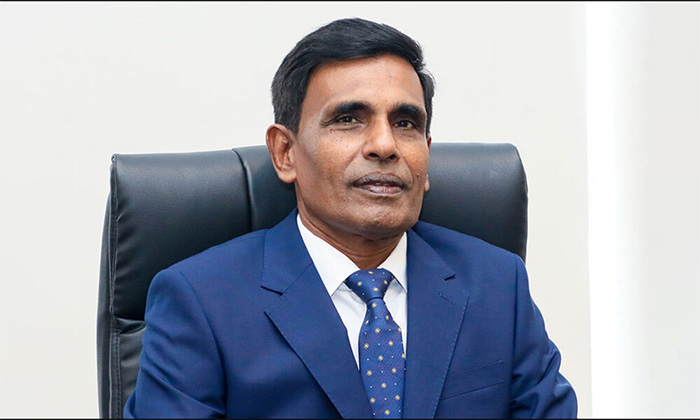
Public Security and Parliamentary Affairs Minister Ananda Wijepala on Friday (20) disclosed in Parliament details of properties and assets allegedly acquired through illegal activities by suspects arrested in raids carried out since September last year.
The Minister made the disclosure in response to a question raised by MP Ravindra Bandara, stating that the identified assets have been frozen pending further investigations.
He said the assets include properties belonging to several alleged organised crime figures, among them Mandinu Padmasiri, alias ‘Kehelbaddara Padme’, who was arrested last year.
Listing the assets in the House, the Minister said Hapugoda Arachchige Kankanamge Duminda Dilruk has assets worth Rs. 23 million frozen, including a van, a motorcycle, a house and a roller gate.
In the case of Kandaiya Kalamogan, two motorboats have been identified, although their value has not yet been assessed.
Dilum Tharaka Balasuriya is reported to own a two-storey house situated on 15 perches of land with a face value of Rs. 800,000.
Assets belonging to Mohammad Harish Mohammad and Mohammad Shiyam were frozen on January 21, 2026. While the total value has not yet been assessed, five vehicles were confiscated from the former and a car from the latter.
Wijesuriya Mahaduruge Uditha Iroshan Wijesiri has assets valued at Rs. 5 million, including a lorry, while Indika Pathmakumara’s assets include a cab worth Rs. 2.5 million and a bank account containing Rs. 1 million.
Lahiru Sampath is reported to own a three-wheeler valued at Rs. 1.8 million.
According to the Minister, Hettiarachchige Dona Sriyani Chandralatha possesses a four-storey house and 14.7 perches of land valued at Rs. 60 million.
Mandinu Padmasiri, alias ‘Kehelbaddara Padme’, owns 20 perches of land with partially constructed buildings valued at Rs. 30 million and a half-finished six-room building worth Rs. 20 million, the Minister said.
Patabendi Maddumage Shehan Sathsara, alias ‘Dehi Bale Malli’, has five multi-day fishing trawlers valued at Rs. 200 million and a two-storey house with 15.8 perches of land worth Rs. 50 million.
The Minister further disclosed that Jayasinghege Maduranga Sampath owns a cab worth Rs. 5.4 million, a van valued at Rs. 14.5 million, five bank accounts containing Rs. 73.03 million, another account with Rs. 160,328.88 and USD 544, and Rs. 283 million in cash.
Adhikari Samantha Perera is reported to own 10.10 perches of land valued at Rs. 5 million and one acre and 1.5 perches of land worth Rs. 13 million.The Minister said investigations are continuing in respect of the suspects and the frozen assets.
-

 Business6 days ago
Business6 days agoMinistry of Brands to launch Sri Lanka’s first off-price retail destination
-

 Latest News2 days ago
Latest News2 days agoNew Zealand meet familiar opponents Pakistan at spin-friendly Premadasa
-

 Latest News2 days ago
Latest News2 days agoTariffs ruling is major blow to Trump’s second-term agenda
-

 Latest News2 days ago
Latest News2 days agoECB push back at Pakistan ‘shadow-ban’ reports ahead of Hundred auction
-

 Features6 days ago
Features6 days agoGiants in our backyard: Why Sri Lanka’s Blue Whales matter to the world
-

 Sports3 days ago
Sports3 days agoOld and new at the SSC, just like Pakistan
-
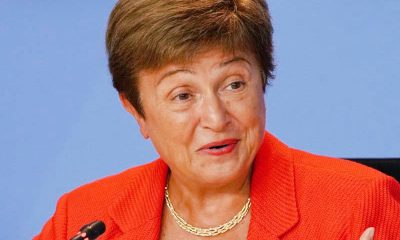
 News5 days ago
News5 days agoIMF MD here
-

 News2 days ago
News2 days agoConstruction begins on country’s largest solar power project in Hambantota






